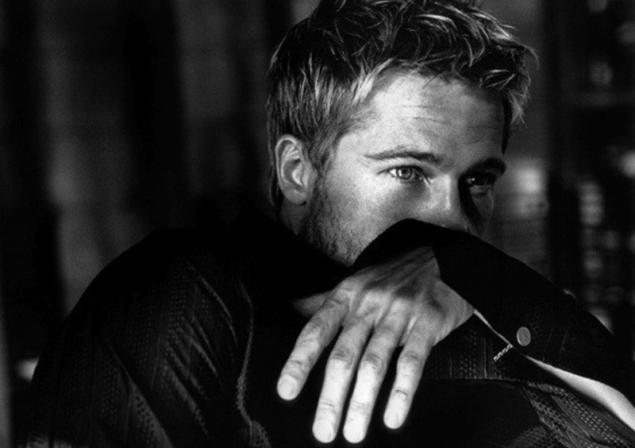417
How to stop being upset for any reason
"The day was perfect. And then interfered with these people". And so constantly. How to deal with it and stop getting upset over small and large occasions, says journalist Eric Barker, the author of the blog about self-development Barking Up The Wrong Tree.
Everyone has moments of frustration. The guy ahead on the road is driving like a complete idiot. The chief behaved ugly. Your partner isn't listening to you. And sometimes all at once. What to do? One person came up with a solution for all these problems.
Albert Ellis character specific. Controversial. Frank. A bit of a rebel. The book that made him famous, was called "How to stubbornly refuse to be miserable in everything — Yes, everything." Cleverly worded, but somehow unprofessional, right? But here's the thing: according to one survey among psychologists, Ellis was ranked second in the list of most psychotherapists in history. Sigmund Freud came in second.
Ellis has developed a system REPT — rational-emotive behavioral therapy. Wikipedia says about it: "Justice the basic theoretical positions and therapeutic efficacy RAPT been confirmed by numerous experimental studies". The system is working. And it's pretty simple. Let's cut the shit.

Tyranny Dagestanian the main thing to take from the work of Ellis: you get upset not because of what's going on. You upset their belief. This idea of the classical philosophy of stoicism, and Ellis has proven that it is working. Here is what he wrote:
"If you understand how you upset yourself, forcing yourself irrational "should", "should", demands and commands, subconsciously down them in your thinking, you can almost always just cease to disturb himself in anything."
Stuck in traffic, and it makes you angry, right? Not so.
Tube happen. But you think they should not happen when on the road you go. And these words "should not" and make you miserable.
For example, I will tell you: "This is medicine for a headache, probably won't work, but try". You try. And it doesn't work. You're not disappointed.
Another situation — I said, "That this tool always works." And it's not working. Now you are annoyed. What's different this time? Your expectations.
Pretty simple, huh? But then the question arises: how to change your beliefs? Ellis also is the answer.
The universe takes your orders (sorry)All is decomposed into four simple points.
1. Activators, hostile events. The tube is horrible.
2. Your beliefs. They are often irrational. "It can't happen to me". But it is happening.
3. Consequences. You're angry, upset or depressed.
Very rarely do you change the item 1. But you can change paragraph 2. And then change the paragraph 3. So...
4. Challenge your irrational beliefs. "Wait a second. And when is the universe promised me a life devoid of trouble? There was no such. Tube have happened before. And will still be. And I will survive."
Search for beliefs that are expressed by the words "must", "must", "must", "must". With some of them and associated problems.
You have the right to desire, to want, to crave. Nobody says that you have to be an emotionless piece of wood.
Here's how suggested to talk Ellis:
"I'd really like(a) to have success, approval, comfort," and then end with a conclusion: "But I don't have(and) to have them. I will not die without them. And I can be happy(a) (though not fully) without them."
You can't bend the universe to his will. Namely here and sneak up to the frustration and anger — because such a godlike existence is not rational.
And more from Ellis:
"But when you insist that you should always have or to do something, you think: "Because I really want to have success, approval of or to have fun, I'm in every conceivable situation, is obliged(a) to receive them. And if you don't, it's terrible, I can't stand this, I'm a second class person who fails to obtain it, and the world is a terrible place, because it gives me what I owe(a) to have! I'm sure that will never get it, so for me, happiness is impossible in principle!"
When you are angry, frustrated or depressed, look at yourself here are irrational beliefs.
"People should always treat me fairly and kindly". Sounds rational? Hardly.
"I owe this to succeed. If that fails, then I'm a loser I'm a loser." Really?
"This man must love me or I'll die." No, no, don't die.
Here he says:
"What are you recently worried or very worried? Meeting with new people? If you can make it work? Will win if the approval of the person that you like? You will pass the exam? Play well at the interview? Winning in tennis or chess? You will get into a good University? If you recognize that you have a serious disease? Do you unjustly. Looking for a team or requirements, thirst of success or approval, which produces your anxiety or too much anxiety. What is your "must", "must", "must"?"
If you really challenge their irrational beliefs, it will change everything? No.
But when you start to challenge them, you will find that your expectations do not correspond with reality. And with some effort, those expectations will begin to change.published
P. S. And remember, just changing your mind — together we change the world! ©
Join us in Facebook , Vkontakte, Odnoklassniki
Source: ideanomics.ru/?p=4035
Everyone has moments of frustration. The guy ahead on the road is driving like a complete idiot. The chief behaved ugly. Your partner isn't listening to you. And sometimes all at once. What to do? One person came up with a solution for all these problems.
Albert Ellis character specific. Controversial. Frank. A bit of a rebel. The book that made him famous, was called "How to stubbornly refuse to be miserable in everything — Yes, everything." Cleverly worded, but somehow unprofessional, right? But here's the thing: according to one survey among psychologists, Ellis was ranked second in the list of most psychotherapists in history. Sigmund Freud came in second.
Ellis has developed a system REPT — rational-emotive behavioral therapy. Wikipedia says about it: "Justice the basic theoretical positions and therapeutic efficacy RAPT been confirmed by numerous experimental studies". The system is working. And it's pretty simple. Let's cut the shit.

Tyranny Dagestanian the main thing to take from the work of Ellis: you get upset not because of what's going on. You upset their belief. This idea of the classical philosophy of stoicism, and Ellis has proven that it is working. Here is what he wrote:
"If you understand how you upset yourself, forcing yourself irrational "should", "should", demands and commands, subconsciously down them in your thinking, you can almost always just cease to disturb himself in anything."
Stuck in traffic, and it makes you angry, right? Not so.
Tube happen. But you think they should not happen when on the road you go. And these words "should not" and make you miserable.
For example, I will tell you: "This is medicine for a headache, probably won't work, but try". You try. And it doesn't work. You're not disappointed.
Another situation — I said, "That this tool always works." And it's not working. Now you are annoyed. What's different this time? Your expectations.
Pretty simple, huh? But then the question arises: how to change your beliefs? Ellis also is the answer.
The universe takes your orders (sorry)All is decomposed into four simple points.
1. Activators, hostile events. The tube is horrible.
2. Your beliefs. They are often irrational. "It can't happen to me". But it is happening.
3. Consequences. You're angry, upset or depressed.
Very rarely do you change the item 1. But you can change paragraph 2. And then change the paragraph 3. So...
4. Challenge your irrational beliefs. "Wait a second. And when is the universe promised me a life devoid of trouble? There was no such. Tube have happened before. And will still be. And I will survive."
Search for beliefs that are expressed by the words "must", "must", "must", "must". With some of them and associated problems.
You have the right to desire, to want, to crave. Nobody says that you have to be an emotionless piece of wood.
Here's how suggested to talk Ellis:
"I'd really like(a) to have success, approval, comfort," and then end with a conclusion: "But I don't have(and) to have them. I will not die without them. And I can be happy(a) (though not fully) without them."
You can't bend the universe to his will. Namely here and sneak up to the frustration and anger — because such a godlike existence is not rational.
And more from Ellis:
"But when you insist that you should always have or to do something, you think: "Because I really want to have success, approval of or to have fun, I'm in every conceivable situation, is obliged(a) to receive them. And if you don't, it's terrible, I can't stand this, I'm a second class person who fails to obtain it, and the world is a terrible place, because it gives me what I owe(a) to have! I'm sure that will never get it, so for me, happiness is impossible in principle!"
When you are angry, frustrated or depressed, look at yourself here are irrational beliefs.
"People should always treat me fairly and kindly". Sounds rational? Hardly.
"I owe this to succeed. If that fails, then I'm a loser I'm a loser." Really?
"This man must love me or I'll die." No, no, don't die.
Here he says:
"What are you recently worried or very worried? Meeting with new people? If you can make it work? Will win if the approval of the person that you like? You will pass the exam? Play well at the interview? Winning in tennis or chess? You will get into a good University? If you recognize that you have a serious disease? Do you unjustly. Looking for a team or requirements, thirst of success or approval, which produces your anxiety or too much anxiety. What is your "must", "must", "must"?"
If you really challenge their irrational beliefs, it will change everything? No.
But when you start to challenge them, you will find that your expectations do not correspond with reality. And with some effort, those expectations will begin to change.published
P. S. And remember, just changing your mind — together we change the world! ©
Join us in Facebook , Vkontakte, Odnoklassniki
Source: ideanomics.ru/?p=4035























